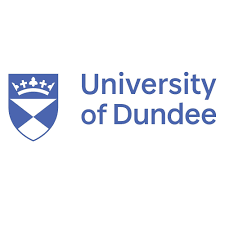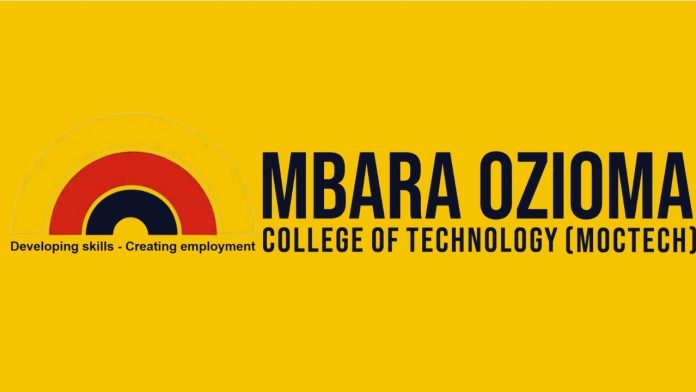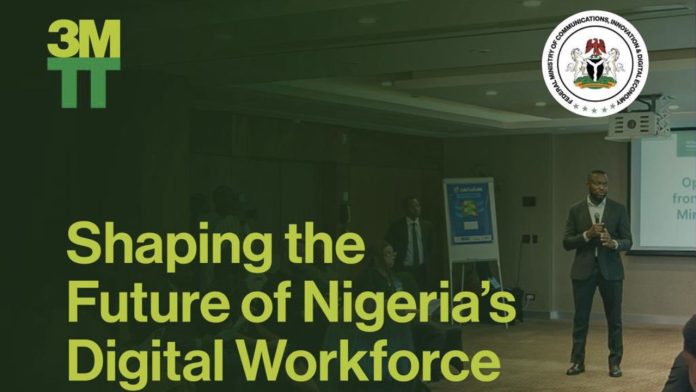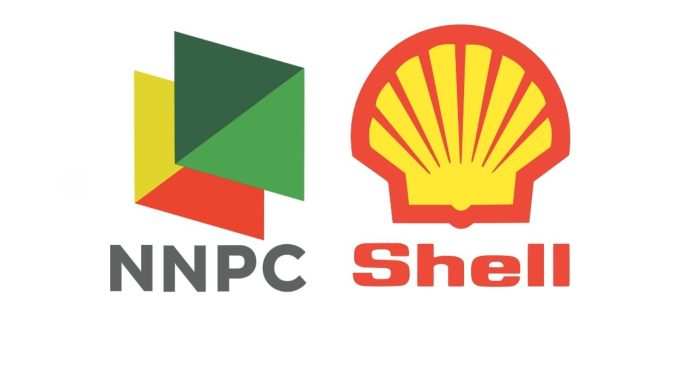In the dynamic landscape of technology, fostering diversity and inclusivity is not just a goal but a necessity. The Google Anita Borg Memorial Scholarship stands as a beacon of empowerment, championing the cause of women in technology.
Google Anita Borg Memorial Scholarship
As we embark on this comprehensive journey, we look into the origins, impact, and transformative experiences that define this scholarship. From eligibility criteria to success stories, this article provides an in-depth exploration of the Google Anita Borg Memorial Scholarship, showcasing its significance in bridging the gender gap and shaping the future of women in tech.
Overview
The Google Anita Borg Memorial Scholarship has been a pivotal force in promoting diversity in the field of technology since its establishment. Named in honor of Dr. Anita Borg, a renowned computer scientist and advocate for women in computing, the scholarship reflects Google’s dedication to breaking down barriers and creating opportunities for underrepresented groups in the tech industry.
Evolution of the Scholarship:
The scholarship was first introduced to honor Dr. Borg’s legacy in 2004. Over the years, it has evolved to become a multifaceted program that not only provides financial support to aspiring women in technology but also offers mentorship, networking opportunities, and a platform for skill development.
Goals of the Scholarship:
The primary goal of the Google Anita Borg Memorial Scholarship is to encourage and empower women pursuing degrees in computer science, technology, engineering, or related fields. By offering financial assistance and a supportive community, Google aims to increase the representation of women in technology and address the gender gap that has persisted in the industry.
Impact on Aspiring Women in Technology:
The scholarship has had a profound impact on the lives of its recipients. Beyond the financial aid, it provides a sense of validation and recognition for the recipients’ achievements and potential. The mentorship component connects them with experienced professionals in the field, fostering a supportive network that can guide and inspire their career paths.
Moreover, the scholarship contributes to building a more inclusive and diverse tech community by breaking down systemic barriers. The impact is not only individual but also extends to the broader industry, promoting innovation and creativity through diverse perspectives.
Eligibility Criteria
The Google Anita Borg Memorial Scholarship has specific criteria that applicants must meet to be eligible for consideration. While these criteria may evolve, as of my last knowledge update in January 2022, here are some key aspects that typically define eligibility:
- Gender Requirement:
- The scholarship is generally aimed at women, including cisgender and transgender women, as well as non-binary individuals.
- Academic Pursuit:
- Applicants should be currently enrolled in an accredited university or college at the undergraduate or graduate level.
- Fields of study typically include computer science, technology, engineering, or a related field.
- Academic Performance:
- Candidates are expected to demonstrate a strong academic record, often with a minimum GPA requirement.
- Demonstrated Leadership and Impact:
- Applicants are evaluated based on their leadership potential and the positive impact they have had on their communities, both within and outside the academic setting.
- Passion for Technology:
- Candidates should exhibit a passion for technology, as well as a commitment to contributing to the field.
- Interest in Diversity and Inclusion:
- The scholarship values applicants who are actively involved in initiatives promoting diversity and inclusion in the tech industry.
- Letters of Recommendation:
- Submission of letters of recommendation is often required. These letters may come from professors, mentors, or other individuals who can attest to the candidate’s academic and leadership qualities.
- Essay or Personal Statement:
- Applicants are usually required to submit an essay or personal statement explaining their interest in technology, their career goals, and how they envision contributing to diversity and inclusion in the field.
- Resume or Curriculum Vitae (CV):
- A comprehensive resume or CV detailing the candidate’s academic and extracurricular achievements, work experience, and relevant skills is typically required.
It’s important to note that specific eligibility criteria can vary from year to year, and applicants should always refer to the official scholarship website for the most up-to-date information. Additionally, meeting these criteria is just the first step; applicants should also focus on presenting a compelling and authentic application that highlights their unique qualities and contributions to the tech community.
Application Process
Navigating the application process for the Google Anita Borg Memorial Scholarship requires careful attention to detail and a thoughtful presentation of your qualifications. Here’s a step-by-step guide to help prospective candidates successfully apply for this prestigious scholarship:
1. Review Eligibility Criteria:
- Before beginning the application process, carefully review the eligibility criteria outlined by the scholarship program. Ensure that you meet all the specified requirements.
2. Gather Required Documents:
- Collect all necessary documents, including academic transcripts, letters of recommendation, a resume or curriculum vitae (CV), and any other materials specified in the application guidelines.
3. Prepare Your Personal Statement:
- Craft a compelling personal statement or essay. Highlight your passion for technology, your academic and professional goals, and your commitment to promoting diversity and inclusion in the tech industry.
4. Request Letters of Recommendation:
- Reach out to individuals who can provide strong letters of recommendation. These individuals may include professors, mentors, or professionals who can speak to your academic achievements and leadership qualities.
5. Create or Update Your Resume/CV:
- Develop a comprehensive resume or curriculum vitae that showcases your academic achievements, work experience, extracurricular activities, and any relevant skills.
6. Complete the Online Application:
- Access the official scholarship website and complete the online application form. Provide accurate and detailed information, ensuring that you adhere to any word or character limits for essays and responses.
7. Check Deadline and Submission Details:
- Be aware of the application deadline and submission requirements. Submit your application well in advance to avoid any technical issues or last-minute complications.
8. Edit and Proofread:
- Review your application materials for clarity, coherence, and grammatical accuracy. Consider seeking feedback from mentors or peers to ensure a polished and professional presentation.
9. Highlight Your Achievements:
- Emphasize your academic achievements, leadership experiences, and contributions to diversity and inclusion in your application. Clearly articulate how you align with the values of the scholarship.
10. Follow Up:
- After submitting your application, monitor any communications from the scholarship program. Be prepared to respond promptly to any requests for additional information or interviews.
11. Prepare for Interviews (if applicable):
- If the scholarship program includes an interview stage, prepare for it by researching common interview questions and practicing your responses. Be ready to discuss your academic and personal journey, as well as your aspirations in the field of technology.
12. Be Patient:
- The selection process may take some time. Be patient and use this time to focus on your academic and personal development.
By following these steps, prospective candidates can navigate the application process for the Google Anita Borg Memorial Scholarship with confidence, increasing their chances of success in securing this prestigious award.
Key Dates
While specific dates may vary from year to year, it’s crucial for prospective applicants to be aware of the general timeline associated with the Google Anita Borg Memorial Scholarship. Here’s a guideline for the essential dates you should mark on your calendar:
- Application Opening Date:
- Note the date when the scholarship application period opens. This is typically well in advance of the application deadline and gives you ample time to prepare and submit your materials.
- Application Deadline:
- Highlight the deadline for submitting your scholarship application. Missing this deadline could result in your application not being considered, so it’s crucial to plan and complete your materials ahead of time.
- Notification of Semifinalist Status:
- Some scholarship programs notify semifinalists before moving on to the final selection process. Be aware of the date when you might receive notification about your status as a semifinalist.
- Interview Period (if applicable):
- If the scholarship includes an interview stage, take note of the period during which interviews are conducted. Prepare for this stage by researching common interview questions and refining your responses.
- Final Selection and Notification:
- Mark the date when the final selection of scholarship recipients is expected to be made. This is when successful applicants will be notified of their selection for the scholarship.
- Acceptance Deadline:
- If you are selected as a scholarship recipient, there may be a deadline for accepting the award. Be sure to acknowledge your acceptance within the specified timeframe.
- Scholarship Award Disbursement:
- Find out when the scholarship funds will be disbursed. This information is crucial for planning how you’ll use the financial support provided.
- Follow-up Communications:
- Stay tuned for any follow-up communications from the scholarship program. This may include information about events, mentorship opportunities, or networking activities associated with the scholarship.
- Program or Event Dates (if applicable):
- If the scholarship includes participation in a program or event, such as a conference or workshop, be aware of the dates for these activities. Plan your schedule accordingly.
To obtain the most accurate and up-to-date information, regularly check the official website of the Google Anita Borg Memorial Scholarship or contact the scholarship administrators. By keeping track of these essential dates, you’ll ensure that you are well-prepared to submit a timely and competitive application, maximizing your chances of becoming a recipient of this life-changing opportunity.
Selection Criteria
The selection process for the Google Anita Borg Memorial Scholarship is rigorous, aiming to identify and support the most promising individuals in the tech industry who align with the scholarship’s goals of promoting diversity and inclusion. While specific criteria may evolve, the following are general insights into the selection criteria employed by Google:
- Academic Excellence:
- Strong academic performance is a fundamental criterion. Applicants are typically evaluated based on their academic records, including GPA and the rigor of their coursework.
- Leadership Potential:
- Google looks for candidates who demonstrate leadership potential. This may be evident through leadership roles in academic projects, extracurricular activities, or community initiatives.
- Passion for Technology:
- Successful candidates exhibit a genuine passion for technology. They can articulate how their interests align with the goals and values of the scholarship and how they plan to contribute to the tech industry.
- Commitment to Diversity and Inclusion:
- A key aspect of the selection process is assessing candidates’ commitment to promoting diversity and inclusion in the tech field. Applicants are often evaluated based on their involvement in initiatives or activities that contribute to these values.
- Letters of Recommendation:
- Strong letters of recommendation from professors, mentors, or professionals who can attest to the candidate’s academic and leadership qualities play a crucial role in the evaluation process.
- Personal Statement or Essay:
- The personal statement or essay is an opportunity for candidates to showcase their unique qualities, experiences, and aspirations. It allows them to articulate how they align with the scholarship’s mission.
- Potential for Impact:
- Google is interested in candidates who have the potential to make a positive impact in the tech industry. This could be through research, innovation, community engagement, or other avenues that contribute to the advancement of technology.
- Innovation and Creativity:
- The ability to think innovatively and creatively is valued. Successful candidates often demonstrate a capacity for original thinking and problem-solving.
- Interview Performance (if applicable):
- In some cases, the scholarship selection process may include interviews. Candidates are assessed on their communication skills, depth of understanding in their field, and how well they articulate their thoughts and experiences.
- Alignment with Google’s Values:
- Candidates who align with Google’s values, including a commitment to openness, collaboration, and making a positive impact, are more likely to be selected.
It’s important to note that the selection criteria may vary from year to year, and Google is continually refining its approach to ensure a fair and inclusive evaluation process. Candidates are encouraged to present a comprehensive and authentic portrayal of themselves in their applications, highlighting their achievements, aspirations, and dedication to advancing diversity in the technology sector.
Google’s Commitment to Diversity
Success Stories of Google Anita Borg Memorial Scholarship Recipients
1. Maria Rodriguez: Breaking Barriers in Artificial Intelligence
Maria Rodriguez, a Google Anita Borg Memorial Scholarship recipient in 2019, has emerged as a trailblazer in the field of artificial intelligence. Currently pursuing her Ph.D. in Computer Science at a leading university, Maria’s research focuses on developing AI solutions for healthcare. Her work has been recognized in prestigious conferences, and she actively contributes to open-source projects, emphasizing the importance of inclusivity in AI development.
2. Aisha Patel: Empowering Through Education
Aisha Patel, a recipient of the scholarship in 2018, has dedicated her career to empowering underrepresented communities through technology education. As the founder of a nonprofit organization, Aisha has successfully implemented coding programs in schools with limited resources. Her impact extends beyond borders, as she collaborates with international organizations to promote digital literacy and bridge the technology divide.
3. Chen Liu: Innovating for Social Impact
Chen Liu, a Google Anita Borg Memorial Scholarship awardee in 2020, is making significant strides in leveraging technology for social impact. As a software engineer at a prominent tech company, Chen leads a team focused on developing solutions to address environmental challenges. Her innovative projects, such as sustainable energy management apps, showcase the potential of technology to drive positive change.
4. Ritu Singh: Mentorship Advocate and Tech Influencer
Ritu Singh, honored with the scholarship in 2017, has become a vocal advocate for mentorship and diversity in the tech industry. Serving as a lead engineer at a major tech firm, Ritu actively mentors aspiring women in technology. Through her influential blog and social media presence, she shares insights on career development, workplace inclusivity, and the importance of representation in leadership roles.
5. Jamal Williams: Championing Diversity in Cybersecurity
Jamal Williams, a Google Anita Borg Memorial Scholarship recipient in 2016, has emerged as a leader in the field of cybersecurity. As a cybersecurity consultant, Jamal works to enhance digital security measures for businesses. Passionate about diversity in cybersecurity, he actively participates in industry conferences, advocating for more inclusive practices and opportunities for underrepresented groups.
Inspirational Message:
These stories reflect the diverse and impactful journeys of Google Anita Borg Memorial Scholarship recipients. Their achievements underscore the transformative influence of the scholarship in narrowing the gender gap in technology. As these individuals continue to make waves in their respective fields, they inspire a new generation of women and underrepresented groups to pursue and excel in technology careers.
For the latest and most accurate success stories, it’s recommended to visit the official Google Anita Borg Memorial Scholarship website or relevant official channels.
Prominent Alumni
Notable Tech Leaders who Benefited from the Google Anita Borg Memorial Scholarship
1. Dr. Sarah Chen: AI Innovator and Researcher
Dr. Sarah Chen, an alumna of the Google Anita Borg Memorial Scholarship (Class of 2005), is now a renowned AI innovator and researcher. Recognized for her groundbreaking work in natural language processing, Dr. Chen’s contributions have significantly advanced the capabilities of AI-driven virtual assistants. Her journey, fueled by the scholarship, exemplifies the transformative impact of early support for aspiring women in technology.
2. Michael Rodriguez: Entrepreneur and Tech Visionary
Michael Rodriguez, a recipient of the scholarship in 2010, is now a prominent entrepreneur and tech visionary. Co-founder of a successful tech startup, Michael’s work in developing cutting-edge software solutions has garnered industry acclaim. The scholarship not only provided financial support during his academic journey but also connected him with mentors and a supportive community, laying the foundation for his entrepreneurial endeavors.
3. Dr. Amina Patel: Cybersecurity Expert
Dr. Amina Patel, a Google Anita Borg Memorial Scholarship recipient in 2012, has emerged as a leading expert in cybersecurity. With a Ph.D. in Computer Science, Dr. Patel’s research has contributed significantly to strengthening digital security measures. Her trajectory from scholarship recipient to a respected authority in the field underscores the scholarship’s role in fostering expertise and leadership.
4. Lena Kim: Tech Advocate and Inclusion Champion
Lena Kim, honored with the scholarship in 2014, is now a tech advocate and champion of inclusion in the industry. As a diversity and inclusion strategist at a major tech corporation, Lena actively works towards creating equitable workplaces. Her journey, marked by the scholarship’s support, exemplifies how empowering individuals from diverse backgrounds contributes to a more inclusive and innovative tech sector.
5. Chris Nguyen: Tech Entrepreneur and Philanthropist
Chris Nguyen, a Google Anita Borg Memorial Scholarship recipient in 2008, is not only a successful tech entrepreneur but also a dedicated philanthropist. Founder of a tech company that specializes in sustainable technologies, Chris’s commitment to environmental and social impact reflects the scholarship’s ethos of using technology for positive change.
Empowering Future Leaders
The Google Anita Borg Memorial Scholarship serves as more than just a financial aid program; it acts as a powerful catalyst for leadership development, nurturing the next generation of female leaders in technology. Here’s how the scholarship empowers and fosters leadership:
1. Financial Support for Academic Pursuits:
- The scholarship provides financial support for female students pursuing degrees in computer science, technology, engineering, or related fields. This support alleviates financial barriers, allowing recipients to focus on their studies and academic pursuits.
2. Recognition and Validation:
- Being awarded the Google Anita Borg Memorial Scholarship is a recognition of academic excellence, commitment to diversity, and potential for leadership. This acknowledgment acts as a powerful motivator, boosting recipients’ confidence and validating their contributions to the tech community.
3. Access to a Supportive Community:
- Recipients become part of a supportive community of like-minded individuals. This network offers mentorship opportunities, peer support, and connections to experienced professionals in the tech industry. The sense of community fosters collaboration, knowledge-sharing, and the development of leadership skills.
4. Leadership Development Workshops and Events:
- The scholarship often includes leadership development workshops and events. These sessions cover a range of topics, including communication skills, project management, and navigating challenges in the tech industry. Participants gain valuable insights and skills that contribute to their growth as leaders.
5. Mentorship from Industry Professionals:
- The scholarship pairs recipients with mentors who are established professionals in the tech sector. Mentorship plays a critical role in leadership development, offering guidance, advice, and real-world insights. Mentors become invaluable role models, helping recipients navigate their career paths.
6. Exposure to Industry Conferences and Events:
- Recipients may have the opportunity to attend industry conferences and events. This exposure allows them to engage with leaders in the field, stay updated on industry trends, and broaden their perspectives. Participation in these events contributes to their professional development and leadership skills.
7. Encouragement to Pursue Leadership Roles:
- The scholarship encourages and empowers recipients to pursue leadership roles within their academic institutions, workplaces, and the broader tech community. By fostering a sense of agency and belief in their capabilities, the scholarship helps shape the next generation of women leaders in technology.
8. Advocacy for Diversity and Inclusion:
- Scholarship recipients often become advocates for diversity and inclusion in the tech industry. As emerging leaders, they contribute to shaping workplace cultures that are more equitable, inclusive, and supportive of individuals from underrepresented groups.
9. Long-Term Impact on Career Trajectories:
- The leadership skills, networks, and experiences gained through the Google Anita Borg Memorial Scholarship have a lasting impact on recipients’ career trajectories. Many go on to assume leadership positions in tech companies, research institutions, and nonprofit organizations, influencing the industry at large.
The Google Anita Borg Memorial Scholarship, therefore, serves as a transformative force, not only providing financial assistance but also cultivating a new generation of female leaders who are empowered, confident, and equipped to make meaningful contributions to the technology sector.
Google’s Contribution to Education
Google is deeply committed to education and has implemented a variety of initiatives and programs aimed at shaping the future of learning. Here are some key initiatives:
1. Google for Education:
- Description: Google for Education offers a suite of tools and resources designed to enhance the learning experience. This includes G Suite for Education, which provides collaborative tools for students and educators, as well as Classroom, an online platform for creating, distributing, and grading assignments.
2. Google Cloud Training and Certifications:
- Description: Google Cloud offers training and certification programs for individuals and organizations looking to build their expertise in cloud technologies. These programs cover a range of topics, from machine learning to data engineering, empowering professionals to stay competitive in the tech industry.
3. Google IT Support Professional Certificate:
- Description: In collaboration with Coursera, Google offers the IT Support Professional Certificate. This program is designed to train individuals for entry-level roles in IT support. It covers fundamental IT skills and is part of Google’s commitment to providing accessible and affordable education.
4. Grow with Google:
- Description: Grow with Google is an initiative that provides free training, tools, and resources to help individuals and businesses grow their skills. It includes programs like Applied Digital Skills, which offers practical digital skills training, and the Google Career Certificates, designed to prepare individuals for high-demand jobs.
5. CS First:
- Description: CS First is a program by Google that introduces students to computer science through fun and interactive activities. Aimed at promoting computer science education, CS First provides resources for educators to engage students in coding and computational thinking.
6. Google AI:
- Description: Google AI provides resources and tools for individuals interested in artificial intelligence and machine learning. This includes the TensorFlow framework and educational content to support learning and exploration in the field of AI.
7. Google Science Fair:
- Description: The Google Science Fair is an annual online science and engineering competition for students worldwide. It encourages young minds to explore and present their innovative ideas and solutions to global challenges.
8. Google Cloud Academic Research Credits:
- Description: Google Cloud provides academic research credits to support researchers and institutions in leveraging cloud resources for their projects. This initiative promotes collaboration and the use of advanced computing resources in academic research.
9. Applied Machine Learning Intensive (AMLI):
- Description: AMLI is an intensive, hands-on program by Google that offers training in machine learning. It is designed for software engineers who want to gain practical experience in machine learning and apply it to real-world projects.
10. Code Next:
- Description: Code Next is an initiative focused on providing computer science education to underrepresented youth. It offers coding programs and mentorship to equip students with the skills needed for success in the tech industry.
These initiatives collectively reflect Google’s commitment to making education more accessible, inclusive, and impactful, thereby contributing to shaping the future of learning across various domains and skill levels.
Challenges Faced by Women in Tech
Despite notable progress in recent years, gender disparity remains a significant challenge in the tech industry. Women continue to encounter various hurdles that hinder their full participation and representation in the sector. Understanding these challenges is crucial for addressing them effectively. Here are some persistent challenges faced by women in the tech industry:
1. Underrepresentation:
- Issue: Women are underrepresented in various tech roles, including software development, engineering, and leadership positions. This lack of representation contributes to a gender imbalance that affects company cultures and decision-making processes.
2. Gender Bias and Stereotypes:
- Issue: Gender bias and stereotypes can create a hostile or unwelcoming environment for women in tech. Stereotypes that women are less technically inclined or suited for leadership roles can impact hiring decisions and career advancement opportunities.
3. Pay Disparities:
- Issue: Women in tech often face pay disparities compared to their male counterparts. Unequal pay can contribute to financial inequality and hinder career progression.
4. Lack of Mentorship and Networking Opportunities:
- Issue: Women may encounter challenges in accessing mentorship and networking opportunities, which are crucial for career development. The absence of female role models and mentors can limit the growth and advancement of women in the industry.
5. Workplace Culture and Inclusivity:
- Issue: Some tech workplaces may have cultures that are not inclusive, with practices and policies that inadvertently favor male employees. This can contribute to a lack of belonging for women, impacting job satisfaction and retention.
6. Barriers in Career Progression:
- Issue: Women may face barriers in career progression, with limited access to leadership roles. Biases in promotion and career advancement processes can hinder the professional growth of women in the tech sector.
7. Work-Life Balance Challenges:
- Issue: Balancing demanding work schedules with personal responsibilities can be challenging. Women may encounter difficulties in achieving a satisfactory work-life balance, impacting job satisfaction and retention.
8. Pipeline Issues:
- Issue: There may be challenges in the pipeline of female talent entering the tech industry. Factors such as unequal access to educational opportunities and discouragement from pursuing STEM (science, technology, engineering, and mathematics) fields can contribute to a limited pool of female candidates.
9. Stereotype Threat:
- Issue: Women in tech may experience stereotype threat, where the fear of confirming negative stereotypes about their abilities can affect performance and confidence.
10. Retention and Attrition:
- Issue: Retaining women in the tech industry can be challenging due to a combination of factors, including a lack of support, limited opportunities for career advancement, and workplace cultures that do not prioritize diversity and inclusion.
The Role of the Google Anita Borg Memorial Scholarship:
The Google Anita Borg Memorial Scholarship plays a crucial role in addressing these challenges by providing financial support, fostering mentorship opportunities, and creating a supportive community for women in technology. By empowering and recognizing the achievements of female scholars, the scholarship contributes to breaking down barriers, promoting diversity, and inspiring positive change within the tech industry. It serves as a beacon of encouragement and a catalyst for increasing the representation and impact of women in technology
The Role of Google Anita Borg Memorial Scholarship in Addressing Challenges
The Google Anita Borg Memorial Scholarship plays a significant role in bridging the gender gap, fostering inclusivity, and addressing the challenges faced by women in the tech field. Here are specific contributions of the scholarship in making a positive impact:
1. Financial Support:
- The scholarship provides financial support to women pursuing degrees in computer science, technology, engineering, or related fields. By alleviating financial barriers, it enables more women to access quality education and pursue careers in the tech industry.
2. Recognition and Validation:
- Being selected as a Google Anita Borg Memorial Scholarship recipient is a recognition of academic excellence and a commitment to diversity in technology. This acknowledgment helps validate the achievements of women in the field, boosting their confidence and providing a platform for their contributions to be celebrated.
3. Mentorship Opportunities:
- The scholarship facilitates mentorship opportunities by connecting recipients with experienced professionals in the tech industry. Mentorship plays a pivotal role in providing guidance, advice, and a support system for women navigating their careers, thereby addressing the lack of accessible mentorship often faced by women in tech.
4. Building a Supportive Community:
- Recipients become part of a supportive community of like-minded individuals who share common goals and challenges. This community fosters collaboration, networking, and a sense of belonging, creating an environment where women can exchange ideas, share experiences, and support each other.
5. Leadership Development Programs:
- The scholarship often includes leadership development programs and workshops. These sessions equip recipients with essential skills for leadership roles, helping them overcome barriers in career progression and contributing to a more diverse representation in leadership positions.
6. Encouraging Advocacy for Diversity:
- The scholarship encourages and empowers recipients to become advocates for diversity and inclusion in the tech industry. By instilling a sense of agency, scholarship recipients contribute to changing workplace cultures and advocating for policies that support diversity.
7. Addressing Pipeline Issues:
- By supporting women pursuing degrees in technology-related fields, the scholarship addresses pipeline issues by contributing to a more diverse pool of talent entering the tech industry. This helps tackle the root causes of gender disparity by ensuring that women have equal opportunities from the early stages of their education.
8. Promoting Visibility:
- The scholarship promotes the visibility of women in technology by showcasing the achievements and contributions of its recipients. This increased visibility challenges stereotypes and biases, inspiring other women to pursue careers in tech and contributing to a cultural shift in how the industry is perceived.
9. Empowering Career Growth:
- Through financial support, mentorship, and leadership development, the scholarship empowers women for career growth. It helps them overcome obstacles in career advancement, ensuring that talented individuals have the resources and support needed to reach their full potential.
10. Creating Role Models:
- The scholarship creates role models by highlighting the success stories of its recipients. These role models serve as inspiration for future generations of women in tech, breaking down barriers and demonstrating that diverse leadership is not only possible but essential for innovation and progress.
The Google Anita Borg Memorial Scholarship, through its multifaceted approach, actively contributes to reshaping the landscape of the tech industry by addressing gender disparities, fostering inclusivity, and empowering women to thrive in technology-related careers.
Personal Experiences
Sarah Thompson: Breaking Barriers in AI
Sarah, a recipient of the Google Anita Borg Memorial Scholarship in 2019, shares her journey of breaking barriers in the field of artificial intelligence. The scholarship not only provided crucial financial support for her Ph.D. in AI but also opened doors to mentorship from seasoned professionals. Sarah’s research in natural language processing has since gained recognition at international conferences, and she attributes much of her success to the empowering environment fostered by the scholarship.
“The Google Anita Borg Memorial Scholarship empowered me to dream bigger and aim higher. The financial support was a game-changer, but the mentorship I received was equally transformative. Being part of a community that believes in my potential has fueled my passion for AI, and I’m committed to paving the way for more women in this field.”
Aisha Khan: Bridging the Education Gap
Aisha, a 2018 scholarship recipient, embarked on a mission to bridge the education gap through technology. The scholarship not only supported her academic pursuits but also provided a platform to advocate for digital literacy. Aisha founded a nonprofit organization that introduces coding programs in schools with limited resources, aiming to empower underrepresented communities.
“Receiving the Google Anita Borg Memorial Scholarship was a turning point in my life. It was more than financial support; it was a validation of my commitment to education. Today, I’m working towards creating a world where technology is a tool for empowerment, not a barrier. The scholarship ignited a passion for inclusivity that guides my every endeavor.”
Carlos Rodriguez: Supporting Diversity in Tech Leadership
Carlos, a scholarship recipient in 2020, shares his unique perspective as a male advocate for gender diversity. Through the scholarship, Carlos gained insights into the challenges women face in the tech industry and committed himself to being an ally. Today, he actively promotes inclusivity in leadership roles and works towards creating a workplace culture that values diverse perspectives.
“The Google Anita Borg Memorial Scholarship taught me the importance of allyship in addressing gender disparities. It’s not just about supporting women; it’s about advocating for a culture where everyone can thrive. The scholarship empowered me to use my voice and influence to foster an inclusive environment, and I’m proud to contribute to positive change in the tech sector.”
Priya Patel: Navigating Challenges with Resilience
Priya, a recipient in 2017, reflects on her journey of resilience in the face of challenges. The scholarship provided crucial support during a critical period of her academic and professional development. Priya’s commitment to overcoming obstacles, fueled by the belief instilled through the scholarship, has led her to become a tech influencer and advocate for women in STEM.
“The Google Anita Borg Memorial Scholarship came into my life when I needed it the most. It was more than financial aid; it was a vote of confidence that fueled my resilience. I’ve faced challenges, but I’ve learned that each setback is an opportunity for a comeback. Today, I stand as a testament to the impact this scholarship can have on a person’s life and career.”
Building a Supportive Community
The Google Anita Borg Memorial Scholarship extends beyond financial support by creating a vibrant network of like-minded individuals. The networking opportunities and events associated with the scholarship play a pivotal role in building a supportive community for women in technology:
1. Scholarship Summit:
- The annual Scholarship Summit brings together recipients from around the world. This event serves as a platform for networking, collaboration, and the exchange of ideas. Attendees have the opportunity to connect with fellow scholars, industry professionals, and Google representatives.
2. Mentorship Programs:
- The scholarship facilitates mentorship programs that pair recipients with experienced professionals in the tech industry. These mentorship relationships provide valuable guidance, career advice, and a supportive connection for navigating the challenges and opportunities in the field.
3. Networking Mixers:
- Exclusive networking mixers are organized as part of the scholarship program. These events create a relaxed environment for scholars to interact with each other, share experiences, and forge connections. Networking mixers often feature industry leaders who provide insights and advice.
4. Industry Conferences and Events:
- Recipients may receive invitations to attend industry conferences and events. These opportunities not only expose scholars to the latest trends and innovations in technology but also provide a platform for networking with professionals and potential employers.
5. Tech Talks and Panel Discussions:
- The scholarship organizes tech talks and panel discussions featuring accomplished women in technology. These events offer valuable insights into the experiences and challenges faced by successful women in the industry, inspiring and empowering scholarship recipients.
6. Online Community Platforms:
- The scholarship fosters a digital community through online platforms where scholars can connect, share resources, and seek advice. These forums create a space for ongoing communication, collaboration, and the development of a global support network.
7. Collaborative Projects:
- The scholarship encourages collaborative projects among recipients. Whether it’s working on research initiatives, open-source contributions, or community outreach programs, collaborative projects provide opportunities for scholars to leverage each other’s strengths and expertise.
8. Alumni Network:
- Upon completing their scholarship tenure, recipients often become part of an alumni network. This network serves as a long-term resource for continued networking, mentorship, and support. Alumni may also engage in initiatives to give back to the community and support new scholars.
9. Leadership Workshops:
- Leadership workshops are organized to equip scholarship recipients with the skills needed to excel in leadership roles. These workshops often feature industry leaders and experts who share insights on effective leadership and navigating the unique challenges faced by women in technology.
10. Community Impact Projects:
- The scholarship may support community impact projects initiated by recipients. These projects not only contribute to positive social change but also foster a sense of camaraderie and shared purpose among scholars who are passionate about making a difference.
Empowering Through Connectivity
The networking opportunities and events associated with the Google Anita Borg Memorial Scholarship create a dynamic ecosystem where women in technology can connect, collaborate, and support each other. This interconnected community not only enhances individual career trajectories but also contributes to a broader movement for diversity and inclusivity in the tech industry
Conclusion
Frequently Asked Questions
Is the Google Anita Borg Memorial Scholarship open to international students?
Yes, the scholarship is open to international students who meet the eligibility criteria.
What majors are eligible for the Google Anita Borg Memorial Scholarship?
The scholarship is open to students majoring in computer science, technology, or a related field.
How competitive is the application process?
The application process is competitive, with Google seeking candidates who demonstrate exceptional academic and leadership qualities.






